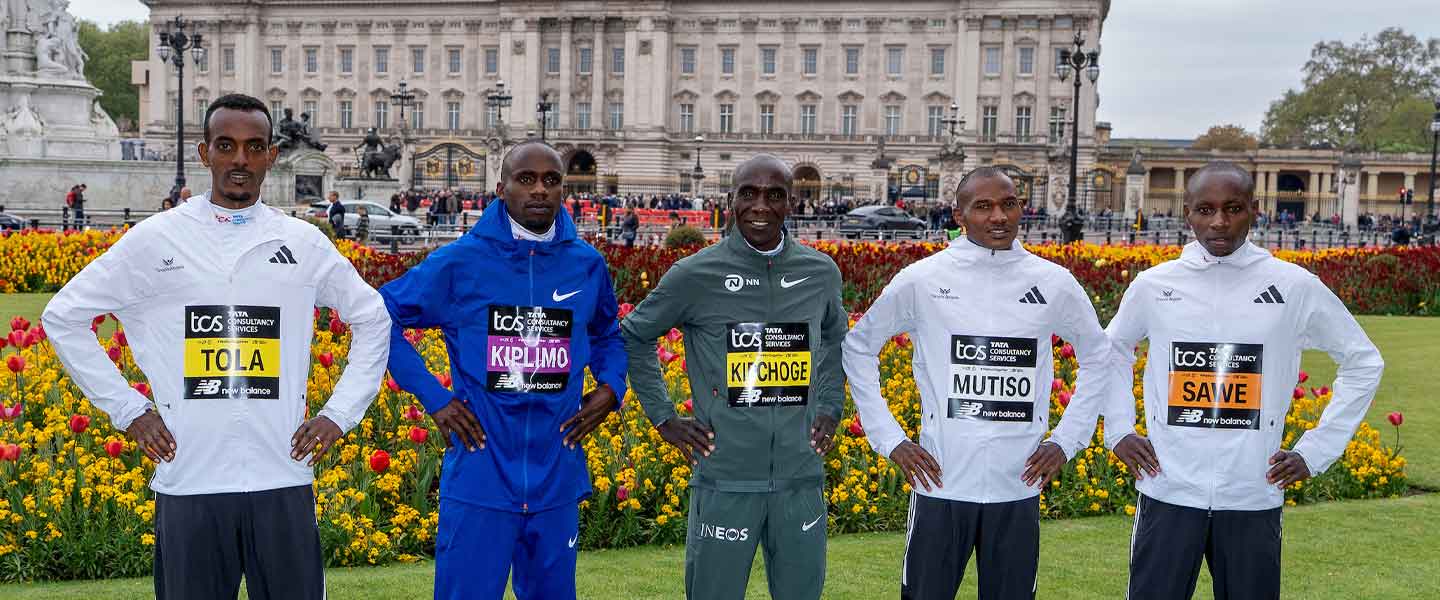
Running a marathon puts a major strain on the body, and, unfortunately, many runners don't focus enough on their diets.
Maintaining a healthy training diet can maximize your performance and make it much easier to eventually cross that finish line. Here's what you need to know about preparing to run 26.2 miles, from the foods to focus on to the best approach for race-day nutrition.
A Healthy Diet for Marathoners
The first step is making sure you are getting enough calories to support the increase in activity. Increasing physical activity without fueling the body correctly can lead to muscle loss, increased risk for illness, stress and poor sleep.
If you're doing moderate levels of intense training — for example, training two to three hours per day, five to six days a week — a 110–220-pound (50-100 kg) athlete could need to consume 2,000–7,000 calories per day in order to support that amount of activity, according to the International Society of Sports Nutrition (ISSN). To meet those elevated caloric needs, you will likely want to eat three meals and multiple snacks each day.
It's also a good idea to choose nutrient-dense food while training. You will not perform your best on a diet of soda and donuts, even though junk food may make it easy to meet your calorie goals. A marathon training diet should be well-balanced and include adequate amounts of whole grains, fruits, vegetables, lean protein and healthy fats.
Leveraging Macronutrients
Macronutrients (i.e., carbohydrates, proteins and fats) are all potential sources of energy for the body, but the body prefers to rely on carbohydrates and fats. As a result, highly active individuals and athletes typically have higher needs for carbohydrates and fats compared with less active people.
When designing your marathon training diet, the most important macronutrients to focus on are carbohydrates, which provide your body with the fuel it needs to reach the finish line. According to the ISSN, athletes following intense training schedules need to eat between 5–8 grams per kg of carbohydrates per day.
Protein is also an important macronutrient for marathon runners. The ISSN recommends an intake of 1.4–1.8 grams per kg per day. Protein, which will help with recovery, injury prevention and support lean muscle, should be consumed throughout the day and always after a run.
Fat should also be part of a healthy marathon runner diet. The ISSN recommends keeping fat at around 30% of total calories, but this can be increased to meet calorie needs if necessary.
Building Your Marathon Training Diet
When you're preparing for a marathon, you don't want to just focus on creating a training plan for running; you also want a solid nutrition plan. Start by determining how much you will be running and then calculate your caloric needs.
If you won't be running more than two hours a day, you won't need to increase your calories that much. The important thing is to listen to your body. If you're hungry, you should eat. If you feel sluggish during a run, try to figure out why. Maybe you're not eating enough, or you're choosing the wrong foods.
Next, create a meal plan around your training schedule. Meals should be balanced and include whole grains, protein, fat, fruits and vegetables. Meal timing matters as well. You should eat a full meal about three to four hours before your run.
It's also wise to consume a small snack of carbohydrates and protein one to two hours before your workout. After your run, eat a meal high in protein and carbohydrates within 45 minutes to help muscles recover.
Maximizing Nutrition Every Morning, Noon and Night
Ready to start planning your next shopping trip? Here's a sample marathon training diet plan that can help you reach your goals:
• Breakfast: Eggs, whole wheat toast, half an avocado and a whole banana
• Morning snack: Apple with peanut butter
• Lunch: Quinoa bowl with black beans, chicken, assorted vegetables, salsa and cheese
• Pre-run snack: Greek yogurt with berries and low-fat granola
• Post-run dinner: Salmon, brown rice, broccoli with butter
• Bedtime snack: Milk, whole-grain cereal and berries
Optimizing Race-Day Nutrition
Figuring out proper nutrition on race day is the crucial final step in preparing your marathon training plan. Choosing the wrong foods or trying to mix up your routine can negatively impact your performance.
To avoid this, make a race-day plan ahead of time. Try packing everything you need a few days before so you don't forget anything important. Lastly, focus on hydration, fast-acting carbs and getting enough calories to support running 26.2 miles all at once.
Following a solid nutrition plan while training and on race day will help make running easier, allowing you to achieve all your marathon goals this year as well as in the future. For more tips on developing the best meal plan for you, a registered dietitian can help.
Other news







